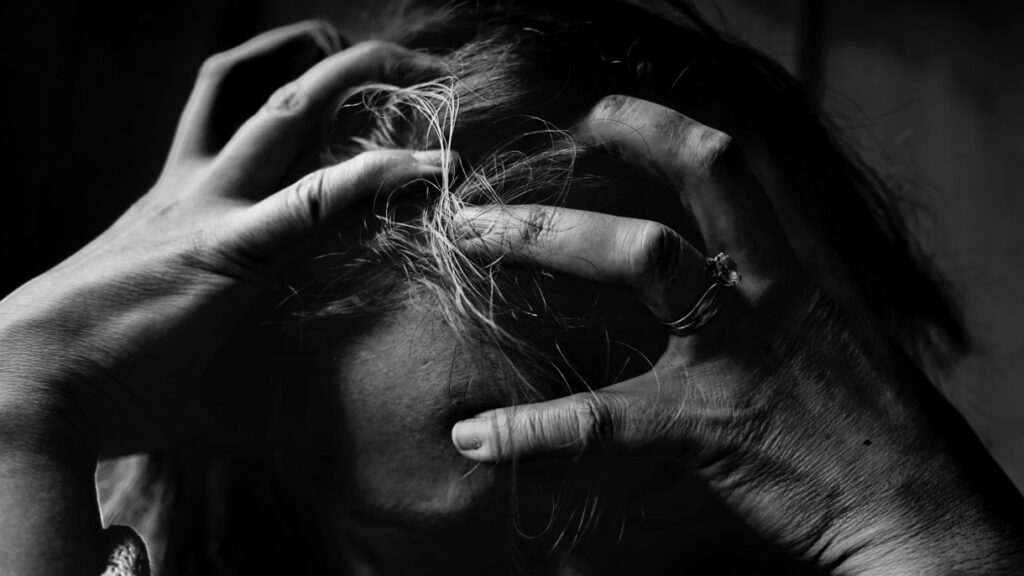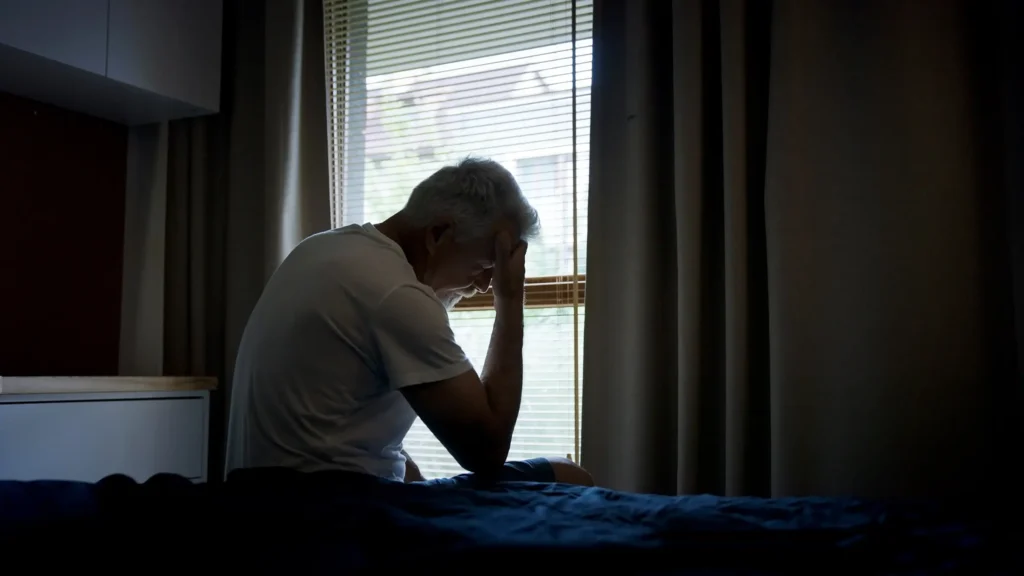Have you ever thought you remembered something that never actually happened? It’s pretty confusing, right? Now, imagine if that happened all the time, and these memories made you feel really guilty or scared. That’s what it’s like for people with something called False Memory OCD. It’s not very common, but it’s super tough for those who have it. They might remember doing something bad or scary that never really happened, and they can’t stop thinking about it.
In this blog, we’re going to talk about what False Memory OCD is all about. We’ll look at why it happens, how it makes people feel, and what it does to their lives. Then, we’ll talk about how people can recover from it and start feeling better. So, let’s get started!
Symptoms

When we look at False Memory OCD, the symptoms can be divided into two main categories: obsessions, which are the intrusive thoughts and worries, and compulsions, which are the actions people take to try to deal with those thoughts. Let’s break these down a bit more.
Obsessions
Obsessions are those unwanted thoughts or images that just keep coming back, no matter how hard you try to push them away. Here’s what they might look like in False Memory OCD:
- Intrusive Thoughts: You might have constant thoughts about events that didn’t happen, making you worry you did something wrong.
- Anxiety and Stress: These fake memories can make you feel really worried and stressed, even if part of you knows they aren’t true.
- Guilt: Feeling guilty over these made-up events is common, even though you logically know they didn’t occur.
- Doubt: Even when you get proof that a memory isn’t real, you might still feel unsure and keep doubting yourself.
Compulsions
Compulsions are the things you feel you need to do to deal with the obsessions. They might seem like they’re helping, but they can actually keep the cycle of OCD going. Here’s how compulsions show up:
- Checking Behaviors: This could be checking with others to see if your memory is correct, revisiting places where you think something might have happened, or going over details in your mind over and over.
- Avoidance: To avoid the discomfort that comes with these false memories, you might start steering clear of certain places, people, or activities that you associate with the memories.
- Seeking Reassurance: You might find yourself constantly asking friends or family to confirm that your memory isn’t true. This can be a way to try to ease the anxiety and guilt, but often, it just leads to more doubt.
Understanding these symptoms, both the obsessions and the compulsions, is important. They show us how False Memory OCD isn’t just about the false memories themselves, but also about how we respond to them. So, if you’re seeing these patterns in your own life, it might be time to seek out some help.
False Memory OCD Examples
 False Memory OCD can create some really tricky situations for people. It makes them believe they’ve done things that never actually happened. Let’s look at a few examples to understand how this can play out in real life. These stories show just how convincing and distressing these false memories can be.
False Memory OCD can create some really tricky situations for people. It makes them believe they’ve done things that never actually happened. Let’s look at a few examples to understand how this can play out in real life. These stories show just how convincing and distressing these false memories can be.
- “Did I really say something hurtful at that party?”
You might replay social interactions in your mind, worried that you’ve insulted someone or made an inappropriate comment, even when there’s no evidence or recollection from others that this happened. - “Could I have hit someone with my car without realizing it?”
After driving, you might question whether you were involved in an accident or hurt someone along the way, leading you to check the route repeatedly or seek reassurance from news sources or social media. - “Did I send an angry email to my boss?”
You may doubt your actions at work, fearing that you’ve made a serious mistake like sending an inappropriate email, and you might check your sent items folder obsessively to make sure it didn’t happen. - “Have I ever hurt someone without remembering it correctly?”
The worry that you might have physically or emotionally hurt someone, even if you’re not a violent person and there’s no evidence of such an event, can become a significant source of anxiety. - “Did I steal something when I was out shopping?”
Concerns about having committed a crime, like shoplifting, despite having no history of illegal activity, can lead you to doubt your moral character and revisit the store to check if you’re remembered or caught on camera.
Common Types of OCD False Memories

When we talk about False Memory OCD, it’s not just one kind of false memory that troubles people. There are several common themes or types that these false memories can take. Here are some of the common types:
- Harming Others
People may falsely remember causing physical harm to someone else, like thinking they hit a pedestrian while driving when it never happened. - Saying Inappropriate Things
There might be false memories about saying something offensive or inappropriate in a conversation, leading to worry and guilt over hurting someone’s feelings, despite no evidence of the conversation taking place. - Violating Morals or Laws
Individuals could have false memories of doing something against their morals or the law, such as stealing from a store or cheating on a test, causing intense anxiety and self-doubt. - Sexual Misconduct
This type involves false memories of behaving inappropriately or consent violations, causing significant distress and confusion over actions that didn’t occur. - Accidental Misdeeds
These false memories are about accidentally causing some kind of disaster, like leaving the stove on and starting a fire, even if they double-checked everything was fine.
Recognizing these common types can help individuals understand they’re not alone and that these experiences are symptoms of OCD, not reflections of their character.
Why Do False Memories in OCD Feel So Real?
One of the most puzzling things about False Memory OCD is how incredibly real these memories can feel, even though they’re not based on actual events. Well, let’s dive into why these memories feel so convincing.
- False memories in OCD often come with a strong emotional reaction, like guilt, fear, or shame. Our brains tend to give more weight to memories that have emotional significance, making these false memories stick and feel more real.
- When you have OCD, you might constantly go over the false memory in your mind, trying to figure out if it really happened. This constant repetition can make the memory seem more plausible and cement it in your mind as something real.
- Even though the core event of a false memory didn’t happen, your brain might fill in details around the supposed event, like where it happened or how you felt afterwards. These details can make the false memory seem more complete and thus more believable.
- Sometimes, in trying to prove a false memory wrong, you might actually look for evidence that supports it.
For example, if you think you might have said something hurtful, any sign of awkwardness in a conversation might be taken as proof that the event did happen, reinforcing the false memory. - With OCD, there’s often a fear that “if I can think it, it might be true.” This fear can make any thought or memory seem like a potential reality, especially if it’s something you’re deeply afraid of doing.
- OCD latches onto the things you care about most, often focusing on fears about harming others, making irreparable mistakes, or acting against your values. This means false memories often involve scenarios that would be deeply upsetting if true, making them feel more significant and real.
How to Recover from False Memory OCD
Recovering from False Memory OCD can be challenging, but with the right strategies and support, it’s definitely possible to manage the symptoms and reduce their impact on your life. Here are some steps to help you on your path to recovery:
Treatment: Therapy for OCD
Treating False Memory OCD involves specific therapeutic approaches that target both the obsessions (the false memories) and the compulsions (the behaviors and mental acts performed to try to deal with or “check” the memories). Here are the most effective therapies:
- Cognitive Behavioral Therapy (CBT)
This type of therapy helps you identify and challenge the distorted beliefs and thoughts that fuel your OCD. It teaches you to replace negative thoughts with more realistic ones, helping to reduce the anxiety caused by false memories. - Exposure and Response Prevention (ERP)
ERP is a specialized form of CBT that involves gradually exposing you to the thoughts, images, objects, and situations that trigger your OCD symptoms, without allowing you to perform any compulsive behaviors to neutralize or stop the anxiety. Over time, this process helps reduce the power these triggers have over you. - Acceptance and Commitment Therapy (ACT)
ACT helps you accept your thoughts and feelings without trying to change them. It emphasizes living a meaningful life based on your values, even when experiencing unwanted thoughts and feelings. - Medication
While therapy is key in treating OCD, medications such as SSRIs (Selective Serotonin Reuptake Inhibitors) can also be helpful in managing symptoms, especially in severe cases. It’s important to consult with a healthcare professional about the best treatment plan for you.
Coping Skills: Tips to Overcome False Memory OCD
 Alongside therapy, developing coping skills can significantly help manage the symptoms of False Memory OCD. Here are some strategies:
Alongside therapy, developing coping skills can significantly help manage the symptoms of False Memory OCD. Here are some strategies:
- Practice Mindfulness
Engage in mindfulness exercises to help stay grounded in the present moment, making it easier to let go of intrusive thoughts without engaging with them. - Limit Reassurance Seeking
Try to resist the urge to seek reassurance about your false memories from others or through checking behaviors. Recognize this as a compulsion that needs to be managed. - Stay Engaged
Keep yourself engaged in activities you enjoy and that make you feel good about yourself. This can help shift your focus away from OCD symptoms. - Develop a Support Network
Connect with others who understand what you’re going through, whether it’s through support groups or online communities. Sharing experiences and coping strategies can be incredibly supportive. - Create a Hierarchy of Fears
With the help of a therapist, list your OCD triggers in order of how much anxiety they cause. Gradually expose yourself to these triggers, starting with the least anxiety-provoking, to build tolerance over time. - Self-Compassion
Be kind to yourself. Understand that recovery takes time and that setbacks are part of the process. Celebrate your progress, no matter how small.
Combining professional treatment with these coping skills can enhance your ability to manage False Memory OCD. Remember, seeking help from a mental health professional is the first step towards recovery.

 Have you ever thought about if our minds could mix up or makeup memories? When someone has OCD, their brain can sometimes do just that, creating what we call False Memory OCD. This condition tricks you into believing something happened when it didn’t.
Have you ever thought about if our minds could mix up or makeup memories? When someone has OCD, their brain can sometimes do just that, creating what we call False Memory OCD. This condition tricks you into believing something happened when it didn’t.

